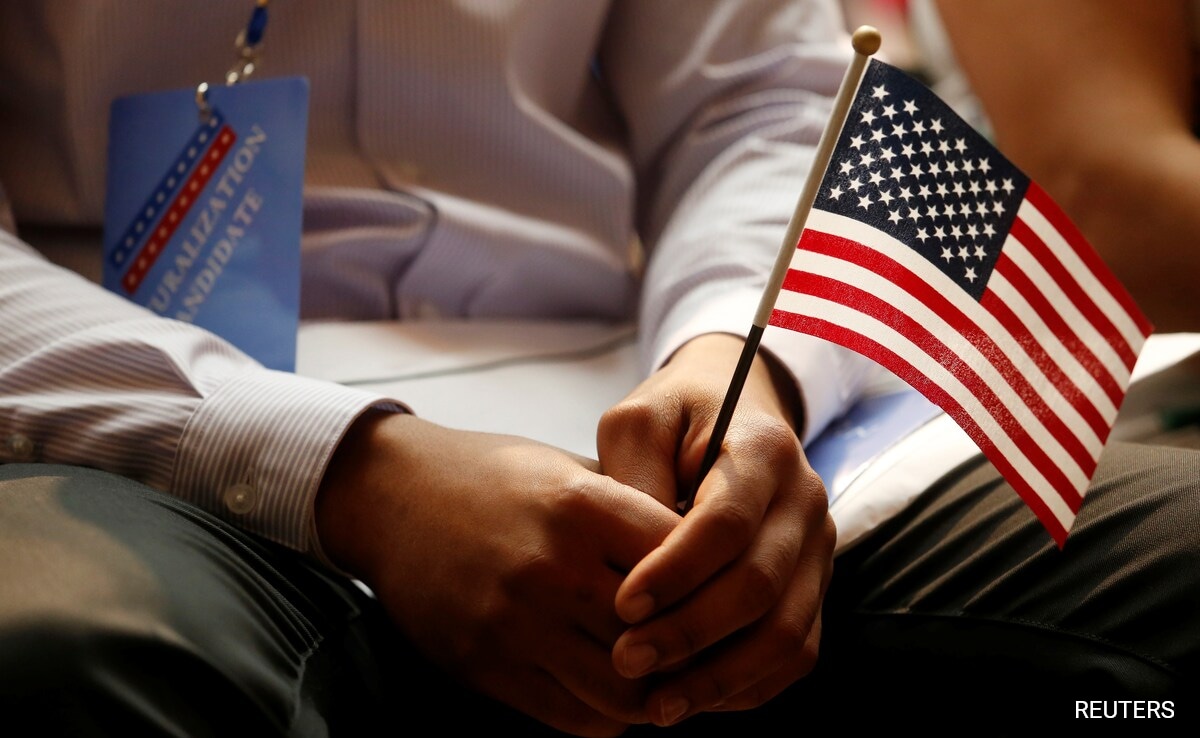Washington’s Tough Stance on International Students Raises Alarms
The Trump Administration has recently implemented a new policy that significantly impacts foreign students in the United States, particularly those from countries like India, China, and Bangladesh. This policy aims to more swiftly deport international students whose visas have been revoked, marking a notable shift in immigration enforcement. The changes came to light as legal battles unfolded regarding previous student visa cancellations, raising questions about due process and the treatment of students within the immigration system.
According to reports, including those by Associated Press, the new regulations allow for rapid deportation, effectively stripping foreign students of their ability to remain in the United States if their visa is canceled for any reason. Previously, students could stay in the country while completing their studies even after a visa revocation, but the latest policy has upended that precedent.
As of January 20, 2025, Immigration and Customs Enforcement (ICE) has reportedly terminated Student and Exchange Visitor Information System (SEVIS) records for nearly 4,736 international students, many of whom are Indian nationals. This change comes amid a broader crackdown on immigration policies, as the administration seeks to tighten control over foreign nationals studying in the U.S.
What’s at Stake for International Students?
The revamped immigration guidelines are a concern for many students who seek educational opportunities in the United States. The Trump Administration’s new approach relies heavily on their ability to revoke the legal status of students whose visas are canceled, introducing a chilling effect on foreign education. So, who exactly is affected by these new policies?
International students from various backgrounds, including notable populations from South Korea, Nepal, and Bangladesh, have reported changes to their immigration status under these guidelines. Those studying in the U.S. must now navigate a system that could deprive them of their education with little warning or recourse.
The implementation date of this new policy began in early 2025, and its ramifications are being felt immediately. Students who may have once felt secure in their educational pursuits now find themselves under scrutiny and at risk of being sent back to their home countries at any moment.
Legal Challenges and Responses
Legal responses to the new regulations have emerged, as attorneys representing affected students argue that the policies lack due process. Reports indicate that several lawsuits have been filed challenging the government’s actions in court. The controversy lies in the manner by which students’ visas are being revoked without adequate justification or a thorough review process.
During court hearings, it was highlighted that the government lacked a legitimate basis for these removals, with officials admitting that the actions taken did not adhere to the foundational legal principle of “innocent until proven guilty.” Many students have found themselves erroneously labeled as criminals simply because their names appeared in a criminal database, even without any formal charges against them.
Consequently, a range of students who had minor violations, such as traffic tickets or university-related infractions, could find their academic dreams dashed. This creates a precarious situation for thousands of students who have come to the U.S. seeking educational opportunities, only to be met with the threat of deportation.
For more insights on the implications of these changes, visit American Immigration Resource.
Impact on Educational Institutions and Future Prospects
The repercussions of these new policies extend beyond individual students. Educational institutions rely heavily on international students for tuition revenue and cultural diversity. The increasing uncertainties surrounding student visa statuses could deter future international applicants from considering U.S. institutions as viable educational destinations.
Schools may also need to reevaluate their support structures for international students, integrating legal assistance and mental health resources for those who may be affected by the ongoing immigration crackdown. The influx of international students has long been a cornerstone of American higher education, contributing significantly to research output, cultural exchange, and financial streams.
The Association of International Educators (NAFSA) has voiced concerns over the potential long-term impacts on enrollment numbers should these stringent measures continue unchecked. As international students are essential for maintaining the vibrancy and competitiveness of U.S. academic institutions, educators and policymakers alike are facing a crucial juncture in shaping the future landscape of international education.
For further details about the impact of immigration policies on international students, check out NAFSA’s official page.
The Road Ahead: Advocating for Change
As international students and advocates rally for reforms, the broader implications of this policy will continue to unfold. The community’s responses, including protests and legal challenges, may influence how immigration laws evolve in the coming years. Support from legal aid organizations and educational institutions will be instrumental in advocating for the rights of foreign students, ensuring that their contributions to U.S. society remain recognized and valued.
In summary, this new policy from the Trump Administration not only affects individual students but poses a threat to the collaborative and innovative spirit of American higher education as a whole. The precarious position of international students signals a need for evaluation and potential reform of current immigration laws to promote a fair and just system that honors the contributions of these individuals.
As the situation develops, it is crucial for stakeholders—students, educators, and policymakers—to actively engage in discussions that seek to protect the integrity of the immigration system while fostering an inclusive environment for international education.
DISCLAIMER
We have taken every measure to ensure that the information in this article and on our social media platforms is accurate, verified, and obtained from reliable sources. For feedback or complaints, please contact us at info@hamslive.com.


